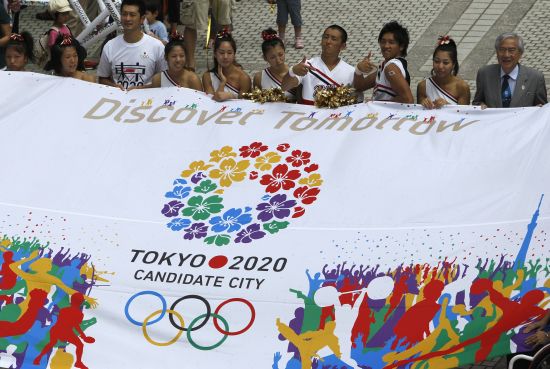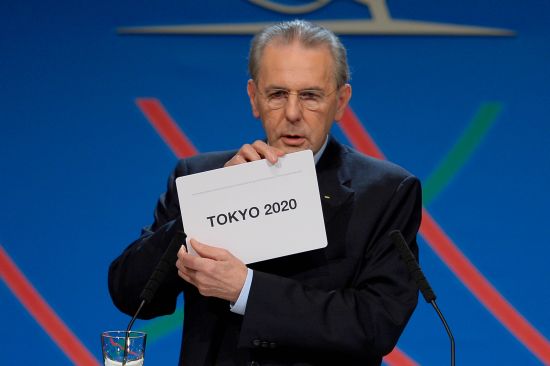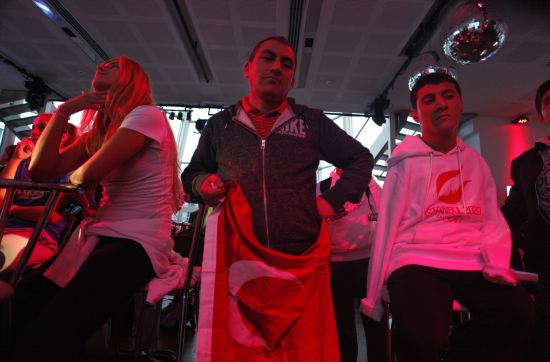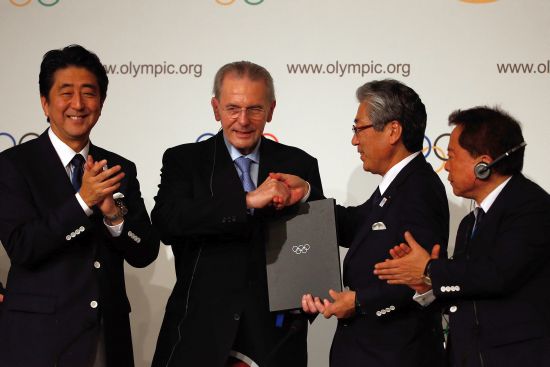 | « Back to article | Print this article |
IOC opts for stability, money in picking Tokyo
The International Olympic Committee was in no mood for new adventures when it picked Tokyo as the host of the 2020 summer Olympics, opting for a "safe pair of hands" that could also boost its finances.
- Abe speech helps secure 2020 summer Olympics for Tokyo
Tokyo beat Turkish metropolis Istanbul in a landslide vote after Madrid were eliminated in the first round, taking the world's biggest multi-sports event back to Asia for the first time since the Beijing 2008 Games.
While Istanbul officials were left licking their wounds after their fifth failed bid in the last six votes, Tokyo were vindicated for a strategy which saw them highlight their solid finances and strong track record of delivering on promises.
The Japanese capital also dangled $4.5 billion in front of the IOC a year before the vote, saying the money for the Games was "in the bank."
"You described yourself as a safe pair of hands and as a surgeon even if I did not vote, this appeals to me," IOC President Jacques Rogge told Japanese Prime Minister Shinzo Abe during the contract signing ceremony after the vote.
'Tokyo's bid was very, very good for athletes'
The Japanese capital took the lead from the start, landing 42 votes compared to 26 for Madrid and Istanbul, before beating the Turkish metropolis 60-36 in their final round.
Tokyo will now host the Games for a second time since 1964 while Istanbul, hoping the IOC would again go to uncharted waters after giving the 2016 Olympics to Brazil's Rio de Janeiro and to South America for the first time, leave empty handed.
"All three bids were strong bids," IOC Executive Board member John Coates told Reuters.
"But Tokyo's bid was very, very good for athletes, the concentration of venues there is very good."
Istanbul's lack of experience in staging major sports events
"It was also good for the Olympic movement because much of our commercial support is in Asia," he said.
Coates also hinted the conflict in neighbouring Syria had been on the IOC members' minds.
"We also had the geopolitical uncertainties which Istanbul addressed really well," said the Australian.
Asked whether delays in preparations for the Rio Games may have alarmed members and could have swung votes in favour of Tokyo's solid bid, Coates said: "I may have heard that."
Tokyo's compact bid has estimated a non-Games budget of around $4.4 billion compared to $3.4 billion for the actual event.
Istanbul's proposal had a total cost of $19 billion, making it more ambitious but also risky given the country's lack of experience in staging major sports events.
'The problems with Rio played a role in this decision'
Influential IOC member Sheikh Ahmad Al-Fahad Al-Sabah, who also heads the Olympic solidarity fund and is president of the Association of national Olympic committees, said it was exactly the Rio delays that swung the vote in Tokyo's favour.
The Brazilian city is under mounting pressure to speed up preparations, with the IOC obviously unwilling to repeat such an experiment in 2020.
"I think it was more the commitment to the file," he told Reuters.
"It was this commitment that was important. The problems with Rio played a role in this decision."
For the IOC it was a return to the most populous continent of the world and its vast commercial potential.
"It was once more a decision between two principles," said IOC Vice President Thomas Bach.
"There you have one candidature addressing more the sense of tradition and stability and another candidature addresses the longing for new shores."
"This we have seen in the past also with different bids and this times the IOC members - in a fragile world - have decided in favour of tradition and stability."

© Copyright 2025 Reuters Limited. All rights reserved. Republication or redistribution of Reuters content, including by framing or similar means, is expressly prohibited without the prior written consent of Reuters. Reuters shall not be liable for any errors or delays in the content, or for any actions taken in reliance thereon.



